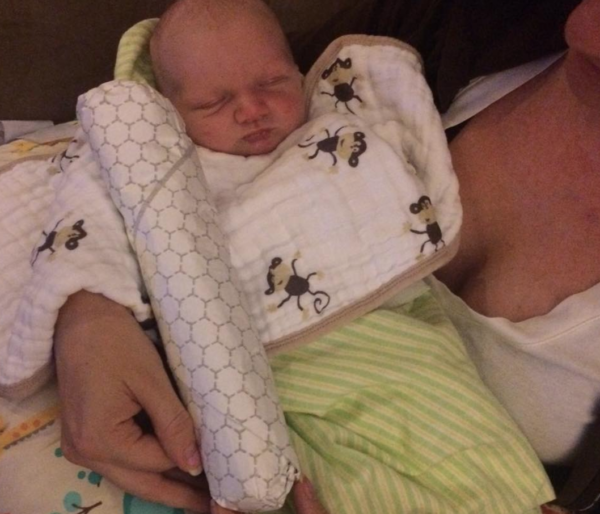A radical new treatment to try!
Colic can be a nightmare for any parent. A colicky baby doesn’t sleep, spends all day crying, and can be nearly impossible to care for. There are all sorts of tricks intended to calm down a colicky baby, but few of them work in the heat of the moment. But, according to new research in the British Medical Journal, there is a new solution to help: acupuncture. That’s right, baby acupuncture may stop colic and help restore your baby to health.
Babies officially have infantile colic when they cry for more than three hours per day on more than 3 days per week. Excessive crying affects roughly 20% of families, and can lead to problems for the babies as well as the parents. The incessant crying may actually hurt the child—making them cry more—and can definitely be a stressor for already stressed parents.
But according to a recent study, acupuncture may be the solution you’ve been looking for!
The Science of Baby Acupuncture
The research, conducted in Sweden, involved almost 150 babies. All of the babies had colic (confirmed at the routine check-ups), and were between 2 and 8 weeks of age. All of them had been on a diet eliminating cow’s milk for no less than 5 days prior to the study. This was intended to prevent excessive fussing and crying.
During the study, the babies were divided into three groups: the first group received 2-5 seconds of acupuncture in a single location, the second group received acupuncture for up to 30 seconds in five different locations, and the third group received no acupuncture (control group). After the treatment, the parents were instructed to keep a diary of how often their child cried. 144 babies made it to the end of the trial period.

READ MORE: 8 Ways to Get Labor Started Naturally
The good news is that ALL of the babies cried less as a result of the treatment. This was no doubt due to the fact that colic tends to clear itself up, even without intervention. However, the control group’s reduction in excessive crying was far less significant than the two test groups. Not only did the babies in the acupuncture group cry less, but they recovered from colic faster than the other two groups.
What’s more, the babies didn’t seem to mind the acupuncture all that much. Out of close to 400 treatments, the babies didn’t cry on 200 of the occasions. Their crying was minimal on 157 occasions, and only 31 treatments caused the babies to cry for more than one minute.
Your baby has only one way to communicate: crying. When they fuss and cry, it’s a sign that there is something wrong. Maybe they need their diaper changed, they’re hungry, cold, or tired, or they want to be held. Whatever the reason, there is a certain amount of crying expected with young infants.
But if your child is crying excessively, it may be a sign of infantile colic. This can be a much more difficult problem to treat, one you may have to “soldier through”. However, if this study proves anything, it’s that parents may be able to consider this new treatment to reduce their child’s colic. Acupuncture has been proven effective for a wide range of conditions and problems, so it’s not difficult to believe it could help to manage infantile colic. Especially if the colic is the result of pain or discomfort. If your child has been crying incessantly for hours every day, it may be time to get them to an acupuncturist!









My little one had severe colic and nothing was going to help until I put him on Babies magic tea. It helped a lot and relieved our son from this freaky colic!!